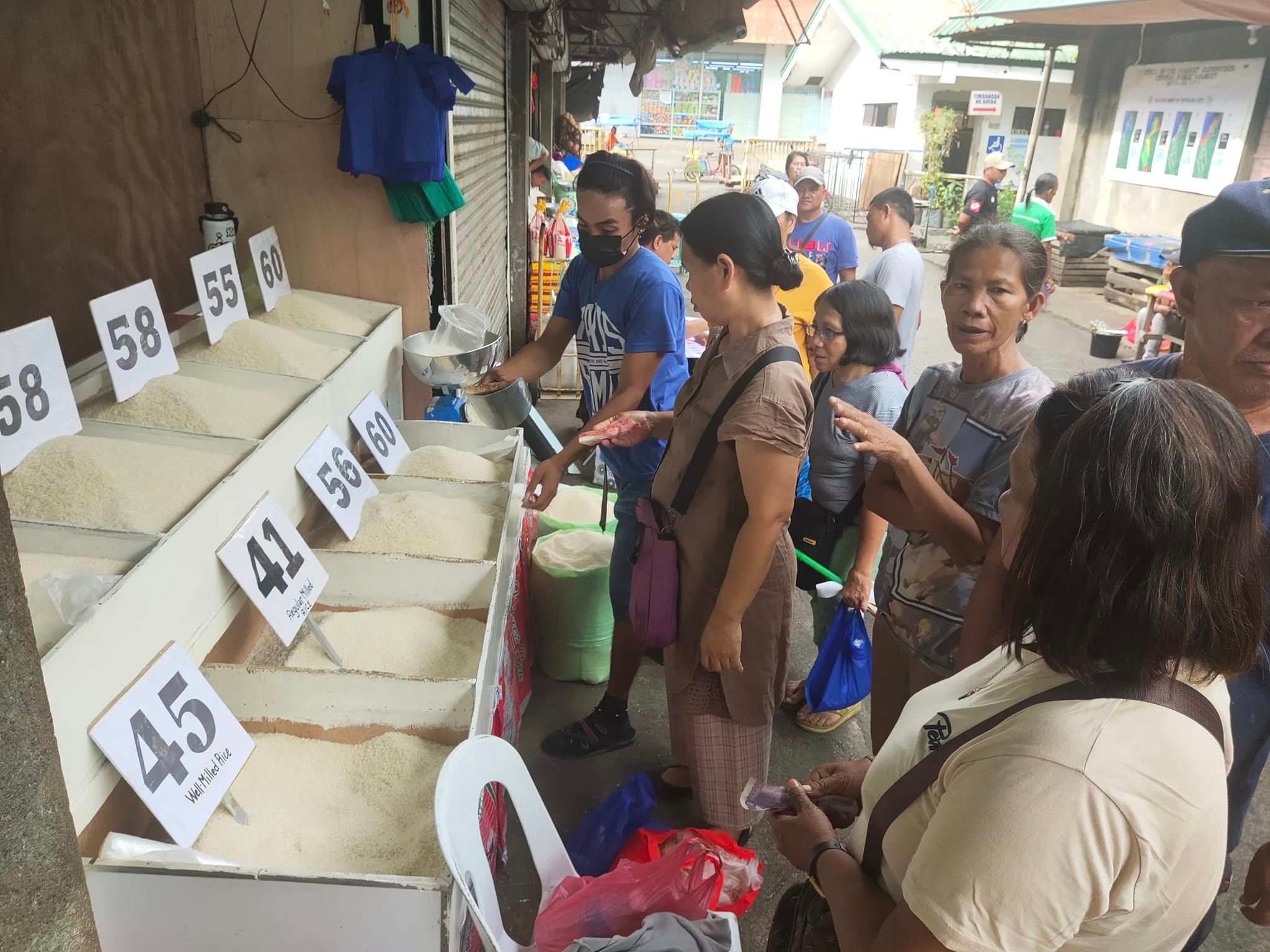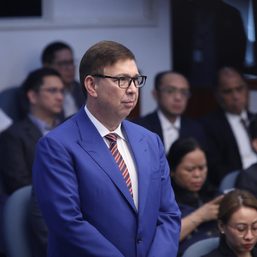SUMMARY
This is AI generated summarization, which may have errors. For context, always refer to the full article.

MANILA, Philippines – Some lawmakers expressed reservations about the Marcos administration’s plan to temporarily cut the tariff on rice imports from 35% to as low as 0% to further manage the market price of the national food staple.
In a privilege speech on Monday, September 11, House social services committee chairperson Ria Vergara pointed out that the proposal would put farmers at a massive disadvantage.
“Reducing the tariff now may help reduce the price of rice in the short term. However, it will be a burden to our farmers, who will be forced to sell their palay at a loss as they enter the second harvest season, the wet season, reduce our government’s revenue from the tariffs, and, worst of all, make our country more dependent on imports,” said Vergara, a lawmaker from the 3rd District of Nueva Ecija province, considered to be the rice granary of the Philippines.

House Assistant Minority Leader Arlene Brosas of Gabriela said the proposal would be “another nail in the coffin” for the “dwindling” local rice industry.
“This proposal by the Department of Finance (DOF) will ensure another huge volume of rice imports, which will further benefit big cartels as rice can be easily smuggled,” Brosas said.
Who floated the proposal?
It was Finance Secretary Benjamin Diokno who disclosed on Friday, September 8, that the government was considering to remove tariffs on imported rice or reduce it to a maximum of 10%.
Under the rice tariffication law, the president has the power to adjust rates of import duty of rice when Congress is not in session. The legislative branch will take a monthlong break beginning September 30.
“We estimate that the price of imported rice could go down by as much as P6 per kilo as a result of a tariff reduction from 35% to 10%,” House ways and means committee chairperson Joey Salceda of Albay’s 2nd District said.
What’s the rationale behind this?
The market price of rice has seen an uptick in recent months, with certain types of the national staple surpassing P60 per kilogram.
President Ferdinand Marcos Jr. pinned the blame on hoarders and smugglers who were supposedly behind the price manipulation, so his administration imposed a price ceiling of P41 to P45 per kilo, depending on the type of rice, to stop these unscrupulous individuals.
Why do economists oppose the price cap?
Adhering to the price cap is a challenge for rice retailers, who would struggle making a profit since logistics costs in the business are already expensive.
This may result in a lower number of vendors selling rice or lower quality of the rice sold.
The price cap policy may also be used by traders as justification to lower the buying prices from farmers, whose backs are already against the wall.

The President’s economic team supported the price cap policy, even though Diokno admitted the release of the executive order by Malacañang surprised them.
The price ceiling policy also cost Finance Undersecretary Cielo Magno her job. She was asked to resign after she posted a photo showing the chart of the law of supply and demand.
In economic theory, a price cap would generate increased demand and decreased supply, resulting in a shortage.
What other suggestions are out there?
Opposition lawmaker Edcel Lagman of Albay’s 1st District suggested that Marcos use the contingent fund worth P13 billion in the 2023 national budget to help rice retailers impacted by the price cap policy.
House Deputy Speaker Ralph Recto, meanwhile, proposed that Congress amend the rice tariffication law so that farmers would directly get cash grants from the Rice Competitiveness Enhancement Fund.
The government is already planning to earmark P2 billion from the 2023 budget to assist rice retailers. House appropriations chairman Zaldy Co said the money may be sourced from unprogrammed funds. – Rappler.com
Add a comment
How does this make you feel?


![[In This Economy] Is the Marcos government unlawfully dipping into PhilHealth funds?](https://www.rappler.com/tachyon/2024/07/marcos-government-philhealth-funds-july-12-2024.jpg?resize=257%2C257&crop=425px%2C0px%2C1080px%2C1080px)








![[ANALYSIS] How one company boosts farmer productivity inside the farm gate](https://www.rappler.com/tachyon/2024/06/bioprime-farmgate-farmer-productivity-boost.jpg?resize=257%2C257&crop=465px%2C0px%2C1080px%2C1080px)


![[ANALYSIS] The department of ambivalent, if not ambiguous agriculture](https://www.rappler.com/tachyon/2024/05/department-of-ambivalent-05252024.jpg?resize=257%2C257&crop=279px%2C0px%2C720px%2C720px)

![[In This Economy] Why amending the Rice Tariffication Law will reopen Pandora’s box](https://www.rappler.com/tachyon/2024/05/amending-rice-tarrification-may-17-2024.jpg?resize=257%2C257&crop=583px%2C0px%2C1080px%2C1080px)
There are no comments yet. Add your comment to start the conversation.